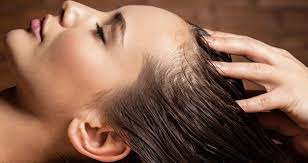Combating Hair Fall Naturally: Ayurvedic Insights
Introduction:
Hair fall is a common concern affecting millions of people worldwide. While there can be various causes for hair fall, Ayurveda, the ancient Indian system of medicine, offers holistic approaches to address this issue. Ayurveda considers hair health as an indicator of overall well-being, and its principles emphasize restoring balance in the body to promote healthy hair growth. In this article, we explore the Ayurvedic perspective on hair fall, its potential causes, and natural remedies that can help combat hair fall effectively.
Understanding Hair Fall from an Ayurvedic Perspective: According to Ayurveda, hair fall is primarily associated with an imbalance in the doshas, particularly Pitta and Vata. Pitta imbalance can lead to excessive heat in the body, which affects the hair follicles, while Vata imbalance can cause dryness and lack of nourishment. Additionally, poor digestion, stress, hormonal imbalances, improper diet, and environmental factors can also contribute to hair fall.
Natural Remedies for Hair Fall:
Scalp Massage with Ayurvedic Oils: Regular scalp massage with herbal oils, such as coconut, sesame, or amla oil, is an essential Ayurvedic practice for hair health. Massage improves blood circulation to the scalp, nourishes the hair follicles, and strengthens the hair roots. Add a few drops of essential oils like rosemary or lavender for additional benefits.
Herbal Hair Masks: Ayurveda suggests the use of natural ingredients like amla (Indian gooseberry), bhringraj, fenugreek, and neem to promote hair growth and reduce hair fall. These herbs are known for their nourishing and strengthening properties. You can create hair masks or infuse them in oils for regular application.
A Balanced Diet: Ayurveda emphasizes the importance of a balanced diet for healthy hair. Include foods rich in vitamins, minerals, and proteins, such as leafy greens, fruits, nuts, seeds, whole grains, and legumes. Avoid processed foods, excessive caffeine, and alcohol, as they can disrupt the body's natural balance.
Stress Management: Chronic stress can contribute to hair fall. Ayurveda recommends practices like meditation, yoga, deep breathing exercises, and adequate sleep to manage stress levels and promote overall well-being.
Ayurvedic Herbal Supplements: Ayurvedic herbs like amla, brahmi, ashwagandha, and shatavari are known to support hair health and reduce hair fall. Consult an Ayurvedic practitioner to determine the appropriate herbs and dosage for your specific needs.
Precautions: While Ayurvedic remedies can be effective, it's important to remember that individual results may vary. It's recommended to consult with a qualified Ayurvedic practitioner or healthcare professional before starting any new treatment or supplement regimen. They can provide personalized guidance based on your specific constitution and any underlying health conditions.
Conclusion: Ayurveda offers a holistic approach to combat hair fall by addressing the underlying imbalances in the body. By nurturing the body, mind, and spirit, Ayurvedic practices can promote healthy hair growth and overall well-being. However, it's important to be patient, as natural remedies may take time to show results. Consistency, a healthy lifestyle, and a balanced approach will contribute to the long-term health of your hair. Embrace the wisdom of Ayurveda and discover natural solutions to nurture your locks and restore their vitality.




